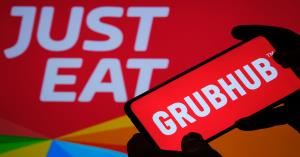Consolidation in Food Delivery
|
07/06/2020 |
|
During June, Just Eat-Takeaway.com NV of the Netherlands intervened in ongoing negotiations between UberEats and Grubhub to acquire the U.S. company in a $7 billion transaction. This provided Just Eat-Takeaway.com with a foothold in the U.S. to attain a scale of operations offering profitability.
It is apparent that operating delivery networks for food is unprofitable, so the emerging business model applied by Just Eat-Takeaway.com is to provide the ordering platform including apps, allowing restaurants to effect local delivery using their own delivery resources. This model is contrary to UberEats, DoorDash and Postmates who employ their own delivery personnel.
Jitse Groen, the founder of Takeaway.com in 2000 bases company profitability on gathering orders and taking a slice of the proceeds as a commission. He stated, "as long as we send messages, we make money". Currently the Just Eat division in the UK delivers only a quarter of the orders placed on its platform. Grubhub in the U.S. delivers half of the orders placed.
|

Jitse Groen |
|
Despite apparent efficiency from consolidation among food ordering and delivery companies they are encountering growing opposition from restaurants. This is based on a variable level of service and a disproportionate expense with up to a 30 percent commission imposed on orders.
 Groen favors operation in high-density areas many of which have established distribution networks. His business model is based on ordering and commissions. The delivery component is downplayed with Groen stating, "with logistics you can't make any money". Since Just Eat Takeaway.com went public in 2016 it has acquired competitors to the value of $17.4 billion including the recently announced Grubhub transaction. Groen favors operation in high-density areas many of which have established distribution networks. His business model is based on ordering and commissions. The delivery component is downplayed with Groen stating, "with logistics you can't make any money". Since Just Eat Takeaway.com went public in 2016 it has acquired competitors to the value of $17.4 billion including the recently announced Grubhub transaction.
Further consolidation among services is inevitable but the trend towards restaurants arranging their own delivery will persist after COVID-19 home confinement ends. This is due to an anticipated disinclination among consumers to visit restaurants.
|

|
|
|